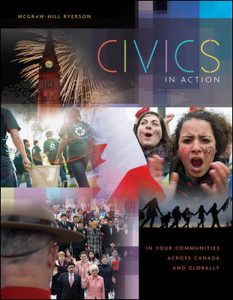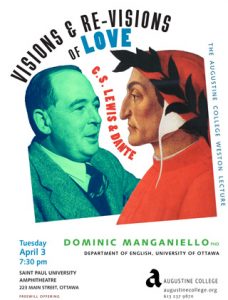It can be difficult to find helpful civics textbooks for the homeschool. Of course, some families don’t need a textbook because they are so involved in politics; that used to be us. Other families can make do with a short Christian resources such as Christian Citizenship Guide. Although we used that book, we also wanted a more thorough overview, and for one teen we ended up using Civics in Action: In Your Communities Across Canada and Globally.
This very colorful, action-oriented text covers
- Becoming Engaged in your Communities
- Community Involvement and Municipal Government
- Your Rights and Responsibilities
- Government Roles and Structures
- The Political Process
- Civics and Citizenship in Global Communities
- Global Action
Civics in Action is full of information. Much of it is highlighted, and much is presented in charts, tables, timelines, and illustrations. The book is very colorful and while this could be distracting to some, it is undoubtedly helpful for others. There are many stories, interviews, and examples. Although the book is laid out well, there is so much going on visually that it can be difficult to see the structure and follow the flow of thought.
Civics in Action promotes action in its teaching, projects, and examples. Many of the illustrations are of young people volunteering, making a political impact, or demonstrating in one way or another. In a three-part “Guide to Action”, the book shows students how to get involved:
- Get inspired,
- Get informed
- Get involved
- Get connected
- Get moving
- Have a lasting impact
This textbook aims to teach students to become informed and to think wisely about impacts of both actions and ideas. For example, “Determining the Impact of an Issue” teaches students to consider what impact an issue may have on a wide range of issues in fields of economic, environmental, social, cultural, health and safety, research and development, and technological growth. Students are encouraged to consider both short-term and long-term effects as well as possible ethical implications. If our governments considered each of the sub-points listed for each field, our society would be much better off. (p 169)
Another helpful page discusses media bias:
- By omission
- By story selection
- By tone
- By selection of sources
- By placement
- By choice of words
These examples of bias can be used to evaluate the text itself. It omits right-to-life issues such as abortion and euthanasia. Its examples showcase a demographic that is not representative of the cross-section Canadians. Its tone is authoritative about issues that are not necessarily settled and about ideas that are not necessarily true. It depends heavily on one source, the organization, Samara. It selects opinions and gives them prime page space, sometimes more than the facts get. And yet, it does its best to be objective on sensitive topics as well.
In terms of philosophy, Civics in Action focuses very much on human rights (except the right to life). It even states that a responsibility of all Canadians is the duty to stand up for their own rights and that of others. In the past one would have focused more on duties such as personally helping those in need; this book promotes a less personally involved, more hands-off approach that tries to involve government instead of quietly meeting others’ needs. As such, it is very contemporary; that trend was thoroughly discussed in the free Christian Citizenship Guide that I reviewed recently. (I highly recommend that book to help clarify nuances and aspects of the human rights movement that are sometimes difficult to understand; it is about Canada but something similar is obviously going on in the US.)
In line with that, Civics in Action assumes that activism related to global issues is an important responsibility, although personal help and hands-on involvement is also discussed.
Furthermore, in discussions of economic systems, the ideal definitions of socialism and communism are given without pointing out difficulties in real world examples, especially of communism.
Finally, freedom of religion is not mentioned often, and the right all Canadians have to life and freedom is not mentioned at all. I suppose that is inevitable in a textbook for public schools because abortion is not a considered a politically correct topic for discussion, because the euthanasia debate has heated up since the book was published, and because human trafficking is a sensitive subject people prefer to ignore. Free high school curriculum units from ARPA address these and similar topics from a Christian point of view and could be a good supplement to Civics in Action.
Our teen had already gone through Christian Citizenship Guide and she studied Civics in Action to complete her civics half-credit. She was able to go through it very quickly because much of it is review for anyone who keeps up with the news, attends ARPA events, and reads Reformed Perspective. I read it quickly, too, to prepare to give an oral exam. The oral exam took us about three hours and was a very efficient way ensure that there were no obvious knowledge gaps and to finish a required course.
If your teen wants to get involved in political life, see the example of Sam Oosterhof, Canada’s youngest elected MPP and a committed Christian.
Note: Civics in Action has been heavily influenced by an organization called Samara, a “non-partisan charity dedicated to strengthening Canada’s democracy,” to the extent that there are more references to Samara in the index than there are to the prime minister, political parties, or parliament.
—
If you enjoyed this review, you might want to connect with me on GoodReads where I eventually share what I read or friend me on Facebook where I occasionally show up.
Disclosure: We borrowed this textbook from our public library.
This post may be linked to Booknificent Thursdays, 52 Books in 52 Weeks Challenge, Literacy Musings Monday, and The Book Nook as well as to Inspire Me Monday, Thankful Thursday, Friendship Friday..



